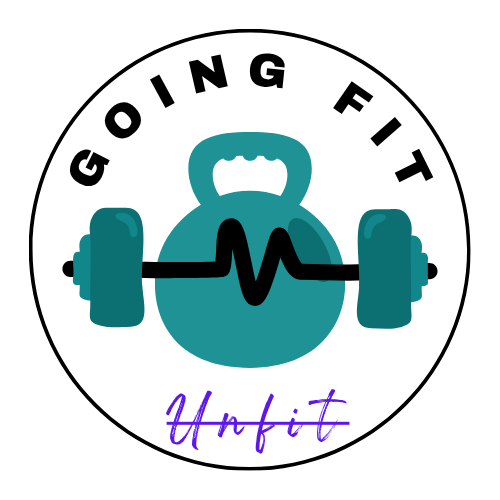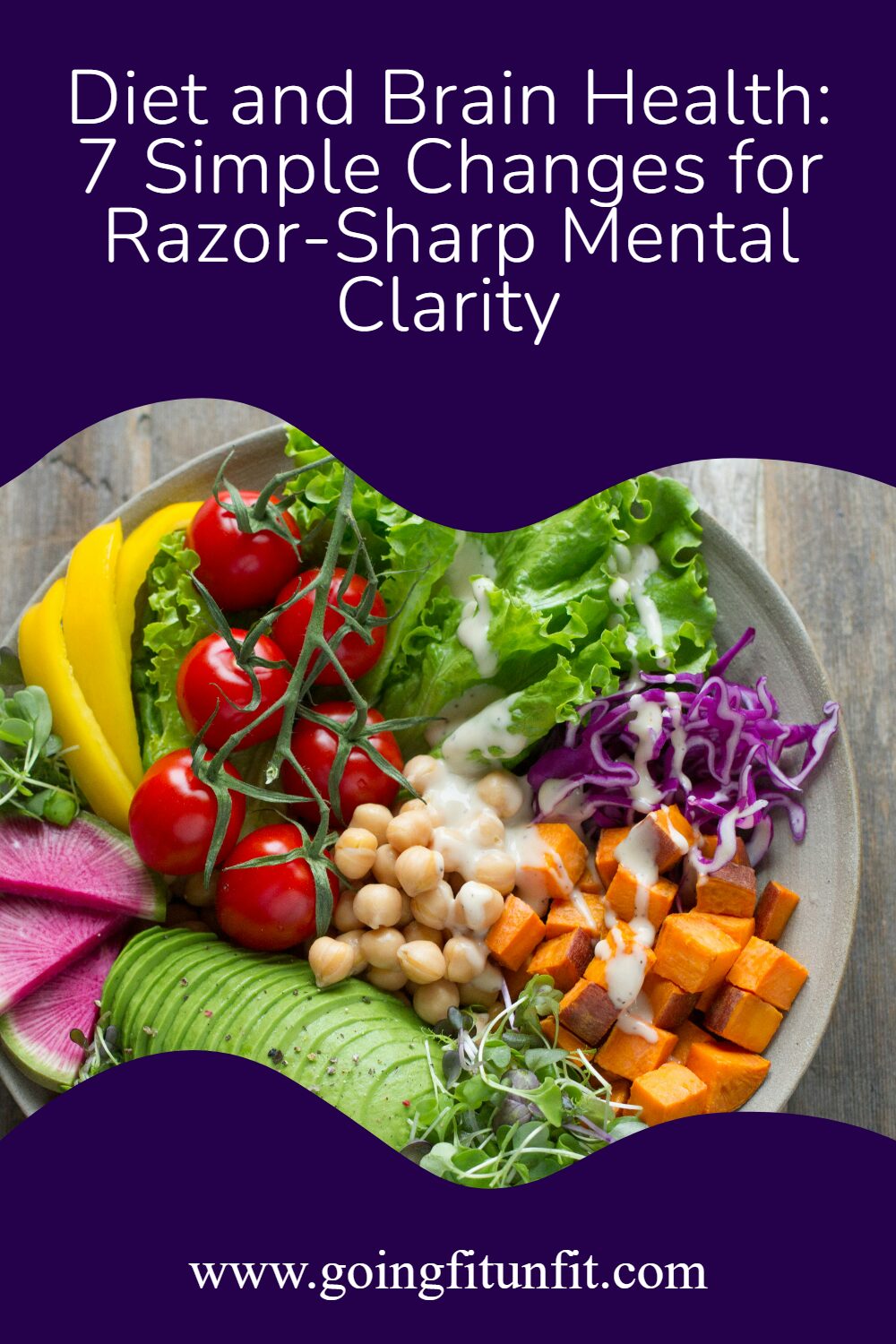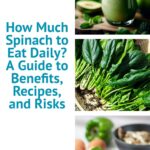Picture this: It’s 2 PM, and your brain feels like it’s wrapped in cotton. You’re staring at your computer screen, but the words might as well be hieroglyphics. Sound familiar? I’ve been there too, and I discovered that the connection between diet and brain health isn’t just scientific theory—it’s a game-changer that can transform your mental clarity in just days.
After years of experiencing afternoon brain fog and struggling to maintain focus, I realized that my plate was the missing piece of the puzzle. The relationship between what we eat and how we think is like having a direct hotline to our brain’s performance center. Let me share the simple, science-backed strategies that helped me unlock consistent mental clarity through nutrition.
Understanding the Diet and Brain Health Connection
Your brain is essentially a high-performance engine that runs 24/7, consuming about 20% of your daily calories. Think of cognitive nutrition like premium fuel for a sports car—you wouldn’t put regular gas in a Ferrari, so why feed your brain anything less than optimal?
The gut-brain connection nutrition pathway works like a two-way highway. When your digestive system processes nutrients, it sends signals directly to your brain through the vagus nerve. This means that every meal you eat is literally programming your mental performance for the next few hours. Research from Harvard Medical School shows that anti-inflammatory diet for brain health can improve cognitive function within weeks.
Best Brain-Boosting Foods for Focus and Mental Performance
The foundation of any effective mental clarity diet starts with understanding which foods act as cognitive enhancers. Brain-boosting foods work like a well-orchestrated symphony, each nutrient playing its part in supporting optimal brain function.
Fatty fish like salmon, mackerel, and sardines are the superstars of omega-3 for cognitive health. These healthy fats are like protective armor for your brain cells, reducing inflammation and supporting memory formation. I’ve found that having salmon twice a week dramatically improved my ability to concentrate during afternoon meetings.
Leafy greens such as spinach, kale, and arugula are packed with B vitamins cognitive function supporters. These vegetables contain folate, which helps produce neurotransmitters that regulate mood and focus. Blueberries, often called “brain berries,” are loaded with antioxidants for mental clarity that protect against oxidative stress.
Top Foods for Focus and Mental Clarity You Can Eat Daily
Creating a sustainable brain healthy eating routine doesn’t require a complete dietary overhaul. Instead, think of it as strategically adding cognitive enhancers to meals you already enjoy. Foods for focus include nuts and seeds, which provide vitamin E and healthy fats that support brain cell integrity.
Walnuts, in particular, are shaped like tiny brains for good reason—they’re rich in DHA, a type of omega-3 that’s crucial for brain health. A handful of walnuts as an afternoon snack has become my go-to strategy for maintaining mental sharpness during the post-lunch energy dip.
Dark chocolate (70% cacao or higher) contains flavonoids that improve blood flow to the brain. It’s like giving your brain a gentle wake-up call that enhances both mood and cognitive function. Green tea provides L-theanine, an amino acid that promotes calm alertness—the perfect state for deep work.
Mediterranean Diet Benefits for Brain Health and Focus
The Mediterranean diet brain benefits have been extensively studied, with research showing it can reduce the risk of cognitive decline by up to 35%. This eating pattern isn’t just a diet—it’s a lifestyle approach that treats food as medicine for the mind.
The Mediterranean approach emphasizes olive oil, which contains monounsaturated fats that support healthy blood flow to the brain. Fish, legumes, nuts, and fresh vegetables form the cornerstone of this nutrients that boost brain power rich eating style.
What makes this approach so effective is its emphasis on whole, unprocessed foods that work synergistically to support brain health. It’s like creating a nutrient-dense environment where your brain can thrive naturally.
How Hydration Impacts Brain Function and Mental Clarity
Hydration and brain performance are more closely linked than most people realize. Your brain is about 75% water, and even mild dehydration can impair concentration, memory, and mood. Think of proper hydration as the foundation that allows all other brain-healthy nutrients to work effectively.
I learned this lesson the hard way during a particularly challenging project when I couldn’t figure out why my thinking felt sluggish despite eating well. The culprit was dehydration. Now I start each day with a large glass of water and aim for at least 8-10 glasses throughout the day.
Herbal teas like ginkgo biloba and ginseng can provide additional cognitive benefits while contributing to your daily fluid intake. The key is consistency—making hydration a non-negotiable part of your brain health routine.
Meal Timing and Focus: When to Eat for Better Mental Clarity
Meal timing for focus is like conducting an orchestra—everything needs to happen at the right moment for optimal performance. Your brain’s energy needs fluctuate throughout the day, and strategic eating can help maintain steady mental clarity.
Starting with a protein-rich breakfast sets the stage for stable blood sugar and sustained focus. I’ve found that having eggs with avocado and spinach creates a foundation of mental energy that lasts until lunch. Avoiding the traditional carb-heavy breakfast prevents the mid-morning energy crash that derails productivity.
The afternoon slump is real, but it’s not inevitable. Eating for mental performance means having a balanced lunch that includes lean protein, healthy fats, and complex carbohydrates. This combination provides steady fuel without the blood sugar rollercoaster that leads to brain fog.
To make this practice part of my daily routine, I rely on Glass Meal Prep Containers. They’ve become an essential part of my brain nutrition toolkit because they make it easy to portion balanced meals that support consistent mental energy.
Diet Solutions for Brain Fog: What to Eat (and Avoid)

Brain fog diet solutions start with identifying and eliminating foods that create mental cloudiness. Processed foods, excessive sugar, and refined carbohydrates are like kryptonite for cognitive function. They create inflammation and blood sugar spikes that leave your brain struggling to maintain focus.
Many people have found that gluten contributes to afternoon brain fog. After eliminating it for just two weeks, some report a dramatic improvement in mental clarity. This doesn’t mean everyone needs to go gluten-free, but it’s worth paying attention to how different foods affect your cognitive performance.
Foods that enhance memory include turmeric, which contains curcumin—a powerful anti-inflammatory compound that crosses the blood-brain barrier. Adding a pinch of turmeric to smoothies or golden milk has become part of my evening routine.
How to Build a Brain-Boosting Meal Plan for Mental Clarity
Building a sustainable diet to improve concentration requires a personalized approach that fits your lifestyle and preferences. Start by incorporating one or two brain-healthy foods into each meal rather than attempting a complete dietary overhaul overnight.
Best foods for brain function should become staples in your weekly meal planning. I keep my kitchen stocked with salmon, blueberries, walnuts, dark leafy greens, and avocados. These ingredients can be mixed and matched to create countless brain-boosting meals.
Remember, what foods improve brain health isn’t just about individual nutrients—it’s about creating eating patterns that support long-term cognitive wellness. Think of each meal as an investment in your mental clarity and cognitive longevity.
The journey to optimal diet and brain health doesn’t happen overnight, but the rewards are worth every mindful bite. Your brain is your most valuable asset—isn’t it time you started feeding it like one?
What’s one simple change you could make to your diet this week to support better mental clarity? I’d love to hear about your experience with brain-healthy eating in the comments below!











I recently learned about the MIND diet
That’s awesome! The MIND diet is such an interesting approach—kind of a blend of Mediterranean and DASH, right? Have you tried any of the recipes or changes yet?
Diet is imperative along with fitness.
Absolutely! Diet and fitness really go hand in hand when it comes to keeping our brains sharp. As the article highlights, even small changes to what you eat—like adding more brain-boosting foods—can make a noticeable difference in mental clarity. Pairing that with regular physical activity amplifies the benefits, supporting both body and mind.
What an interesting post, thank you so much! I have never thought about my diet and how it affects my brain health. As I get older though, I realize more and more what things make me feel bad when I eat them.
Thank you so much for your comment! It’s so true—our diet can have a bigger impact on brain health than we often realize. I love that you’re noticing how certain foods affect the way you feel; paying attention to that is such a powerful step. In the article, we shared a few simple changes that can really support mental clarity and overall brain function, like incorporating more omega-3s, antioxidants, and whole foods. Even small tweaks can make a noticeable difference over time!
I am FLOORED that eating salmon just twice a week improved your mental clarity!! Did you prepare it any particular way? Or eat it at a particular time of day? Thank you.
In the article, we highlight how just a couple of servings of salmon a week—thanks to those omega-3s—can really give your brain a boost. Personally, I kept it simple: baked or grilled with a little olive oil and herbs, and I usually enjoy it at dinner. No special timing needed—just making it a regular part of your week seems to do the trick. Glad it sparked your curiosity!